Stain and Seal Butcher Block Countertops
Butcher block countertops have gained popularity in modern kitchens for their rustic charm and natural appeal. However, to maintain their beauty and extend their lifespan, it’s crucial to stain and seal them properly. Staining enhances the color and grain of the wood while sealing protects it from moisture, stains, and scratches. Let’s delve into the process of staining and sealing butcher block countertops and explore its benefits and considerations.
Choosing the Right Stain for Your Butcher Block Countertops
Selecting the appropriate stain is the first step in enhancing the appearance of your butcher block countertops. Consider the type of wood used in your countertops and the desired finish you wish to achieve. A clear or light-colored stain can highlight the natural grain and create a subtle, contemporary look for lighter woods like maple or birch. On the other hand, darker woods like walnut or cherry can be enriched with deeper, richer stains to enhance their warmth and character.
Before applying the stain, it’s essential to prepare the surface of the butcher block by sanding it thoroughly to remove any imperfections and smooth out the wood grain. Test the stain on a small, inconspicuous area of the countertop to ensure it achieves its desired color and appearance. Once satisfied, apply the stain evenly with a brush or rag, following the manufacturer’s instructions for drying and curing times.
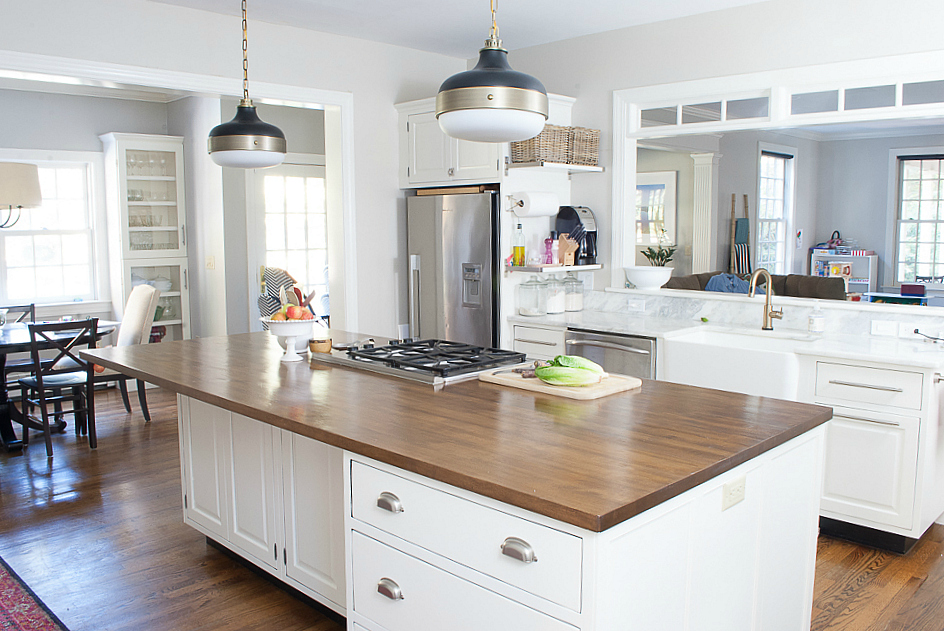
Sealing for Protection and Longevity
After staining, sealing your butcher block countertops is essential for protecting them against everyday wear and tear. A high-quality sealant forms a protective barrier that repels moisture prevents stains, and seals the wood’s pores, ensuring durability and longevity. There are various sealant options available, including natural oils, polyurethane finishes, and food-safe sealants specifically designed for butcher block countertops.
When selecting a sealant, consider factors such as ease of application, drying time, and maintenance requirements. Natural oils, such as mineral oil or tung oil, penetrate the wood to nourish and protect it from within, giving the countertops a warm, natural sheen. Polyurethane finishes provide a durable, waterproof seal that is resistant to scratches and stains, making them ideal for high-traffic areas like kitchen countertops. Food-safe sealants offer a non-toxic option that is safe for food preparation surfaces while providing excellent protection against moisture and stains.
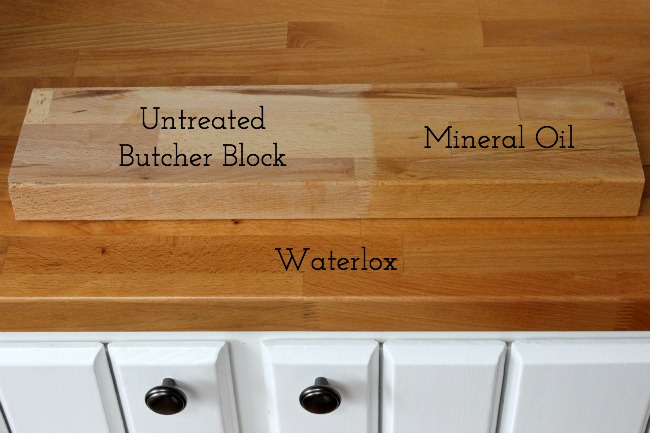
Application Techniques for a Professional Finish
Achieving a professional-looking finish when staining and sealing butcher block countertops requires careful attention to detail and proper application techniques. Begin by thoroughly cleaning the countertop to remove any dust, dirt, or residue from the staining process. Apply the sealant evenly with a brush or roller, working in small sections to ensure thorough coverage and avoid streaks or drips.
For natural oil finishes, apply multiple coats, allowing each coat to penetrate the wood and dry completely before applying the next. Sand lightly between coats to smooth out any imperfections and ensure a smooth, uniform finish. For polyurethane finishes, follow the manufacturer’s instructions for application and drying times, and be sure to ventilate the area properly to avoid inhaling fumes.
Maintenance Tips for Long-Term Beauty
Once your butcher block countertops are stained and sealed, proper maintenance is essential to preserve their beauty and durability over time. Avoid placing hot pots or pans directly on the surface, as extreme heat can damage the sealant and discolor the wood. Use cutting boards and trivets to protect the surface from scratches and stains, and clean up spills promptly to prevent them from seeping into the wood.
Regularly oiling or resealing the countertops every few months can help maintain their protective finish and enhance their natural beauty. Use a food-safe mineral oil or beeswax finish to nourish the wood and restore its luster, especially in areas that see heavy use or exposure to moisture. With proper care and maintenance, your stained and sealed butcher block countertops will continue to provide years of beauty and functionality in your kitchen.
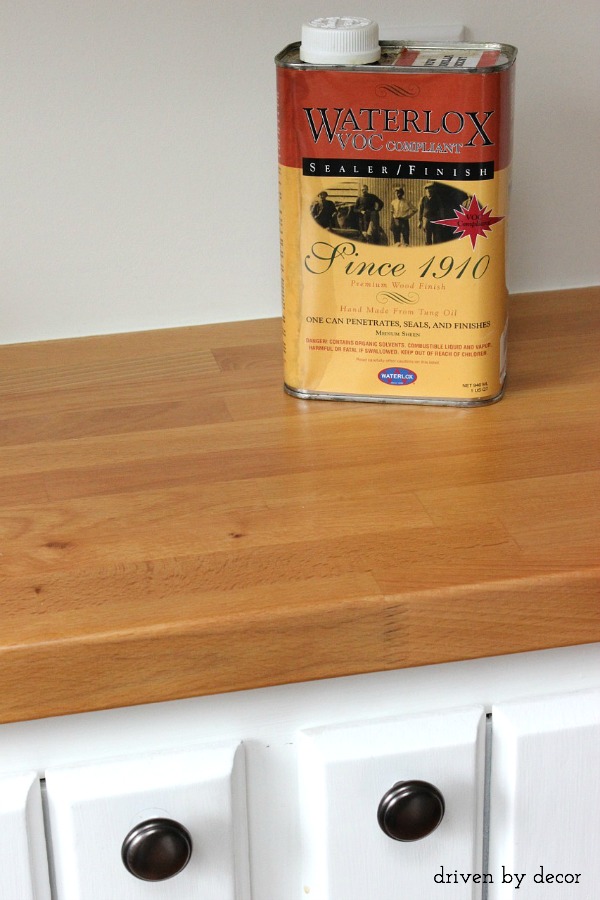
Common Mistakes to Avoid When Staining and Sealing Butcher Block Countertops:
Skipping Surface Preparation: Failing to properly sand and clean the butcher block before staining and sealing can result in uneven absorption and adhesion issues. Take the time to thoroughly sand the surface and remove any dust or debris to ensure a smooth and uniform finish.
Using the Wrong Type of Stain or Sealant: Choosing an incompatible stain or sealant can lead to unsatisfactory results and premature wear. Research different options and select products specifically designed for use on butcher block countertops to ensure compatibility and optimal performance.
Overlooking Maintenance Needs: Neglecting regular maintenance, such as oiling or resealing, can cause the protective finish to deteriorate over time, leaving the wood vulnerable to damage and staining. Establish a routine maintenance schedule and follow manufacturer recommendations to keep your countertops looking their best.
Applying Too Much or Too Little Sealant: Applying an excessive amount of sealant can lead to streaks, drips, and an uneven finish, while applying too little may result in inadequate protection against moisture and stains. Follow the manufacturer’s instructions for proper application techniques and coat thickness to achieve optimal results.

Is staining and sealing butcher block countertops necessary?
Yes, staining and sealing butcher block countertops is essential for protecting the wood against moisture, stains, and scratches, and enhancing its natural beauty. Properly sealed countertops are also easier to clean and maintain over time.
How often should I reseal my butcher block countertops?
The frequency of resealing depends on factors such as usage, exposure to moisture, and the type of sealant used. Generally, it’s recommended to reseal butcher block countertops every few months to maintain their protective finish and prolong their lifespan.
Can I use any type of stain or sealant on butcher block countertops?
It’s important to use stains and sealants specifically designed for use on butcher block countertops to ensure compatibility and safety for food preparation surfaces. Avoid products that contain harmful chemicals or toxins that may leach into food.
Can I stain and seal butcher block countertops myself, or should I hire a professional?
Staining and sealing butcher block countertops can be done as a DIY project with the proper tools, materials, and techniques. However, if you’re unsure about your skills or prefer professional results, hiring a professional installer or refinishing expert may be a better option.
How can I restore the luster of my stained and sealed butcher block countertops?
To restore the luster of stained and sealed butcher block countertops, clean the surface thoroughly and apply a fresh coat of food-safe mineral oil or beeswax finish. Buff the surface with a soft cloth to remove any excess oil and restore its natural sheen.
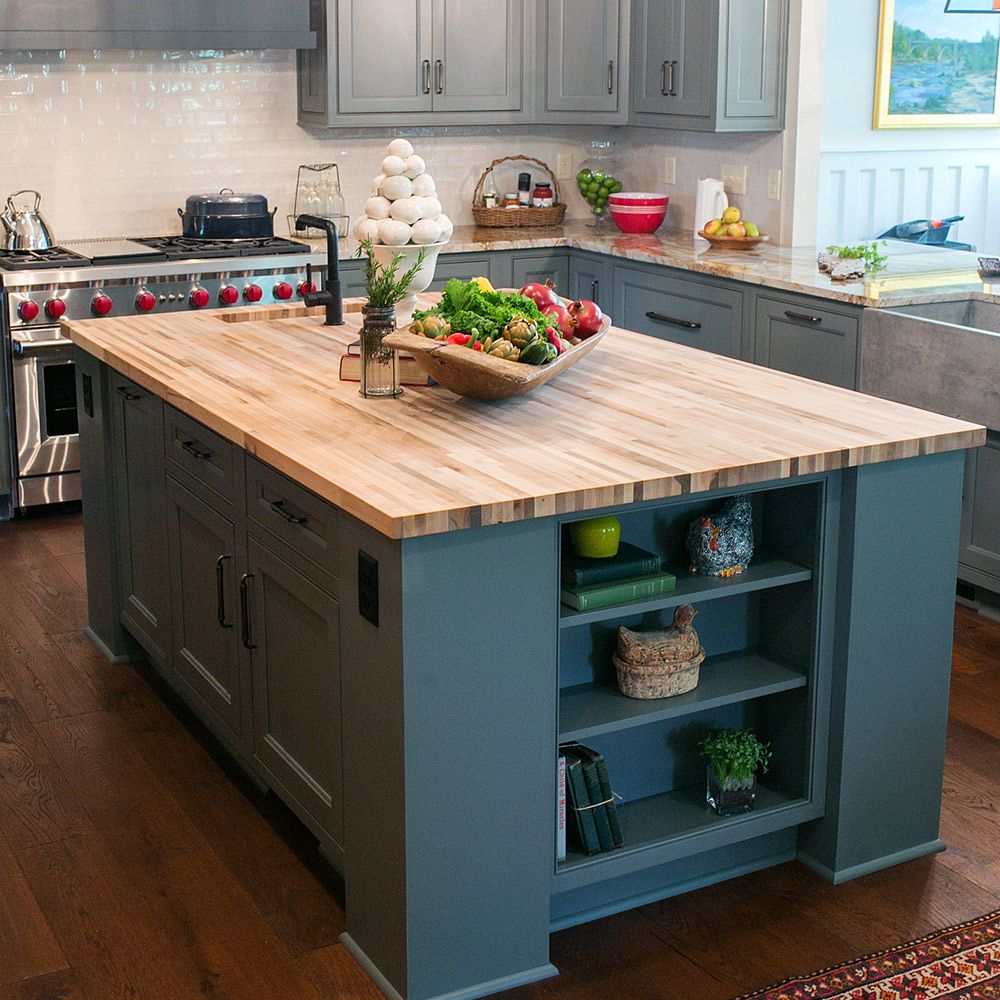
Staining my butcher block counters – A Life Unfolding

SEALING BUTCHER BLOCK COUNTERTOPS –
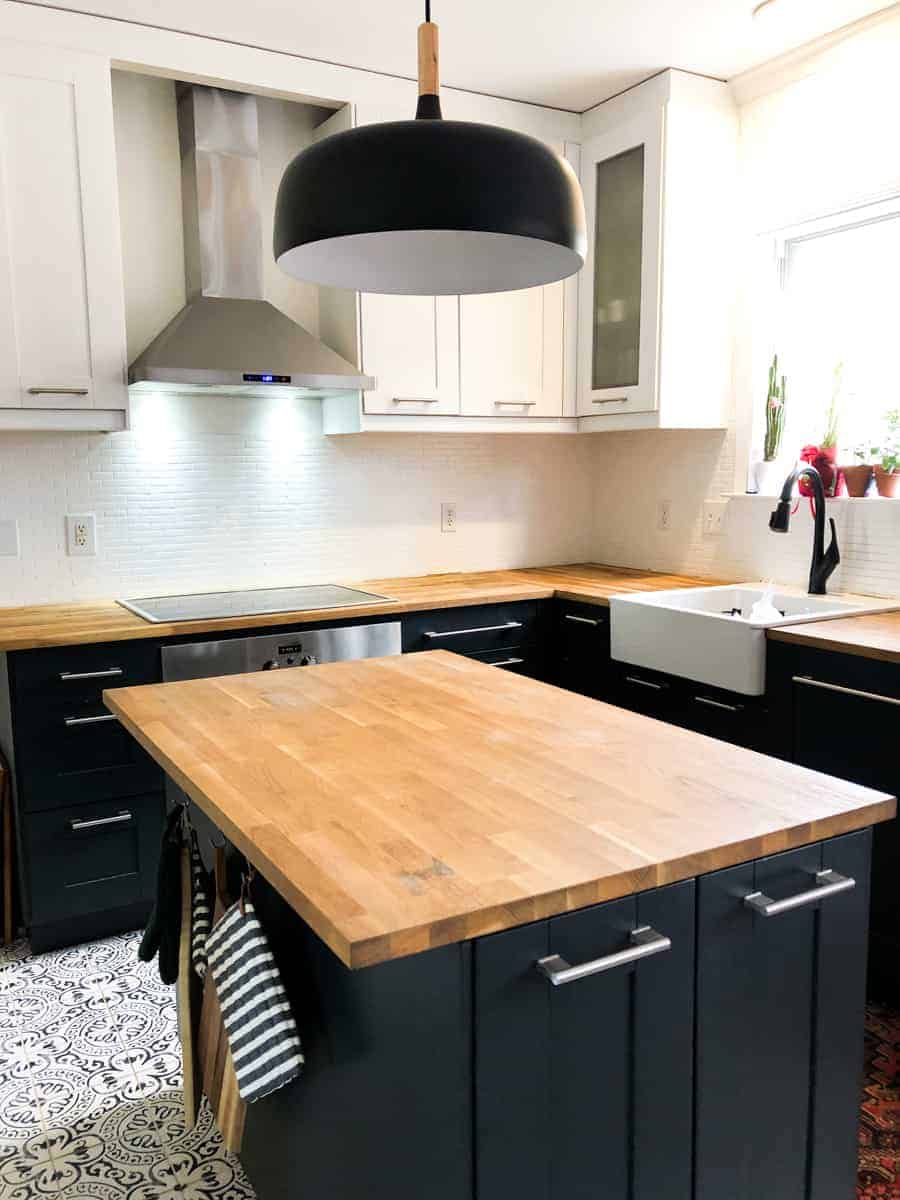
Installing a Butcher Block Countertop + Why We Chose It – Yellow
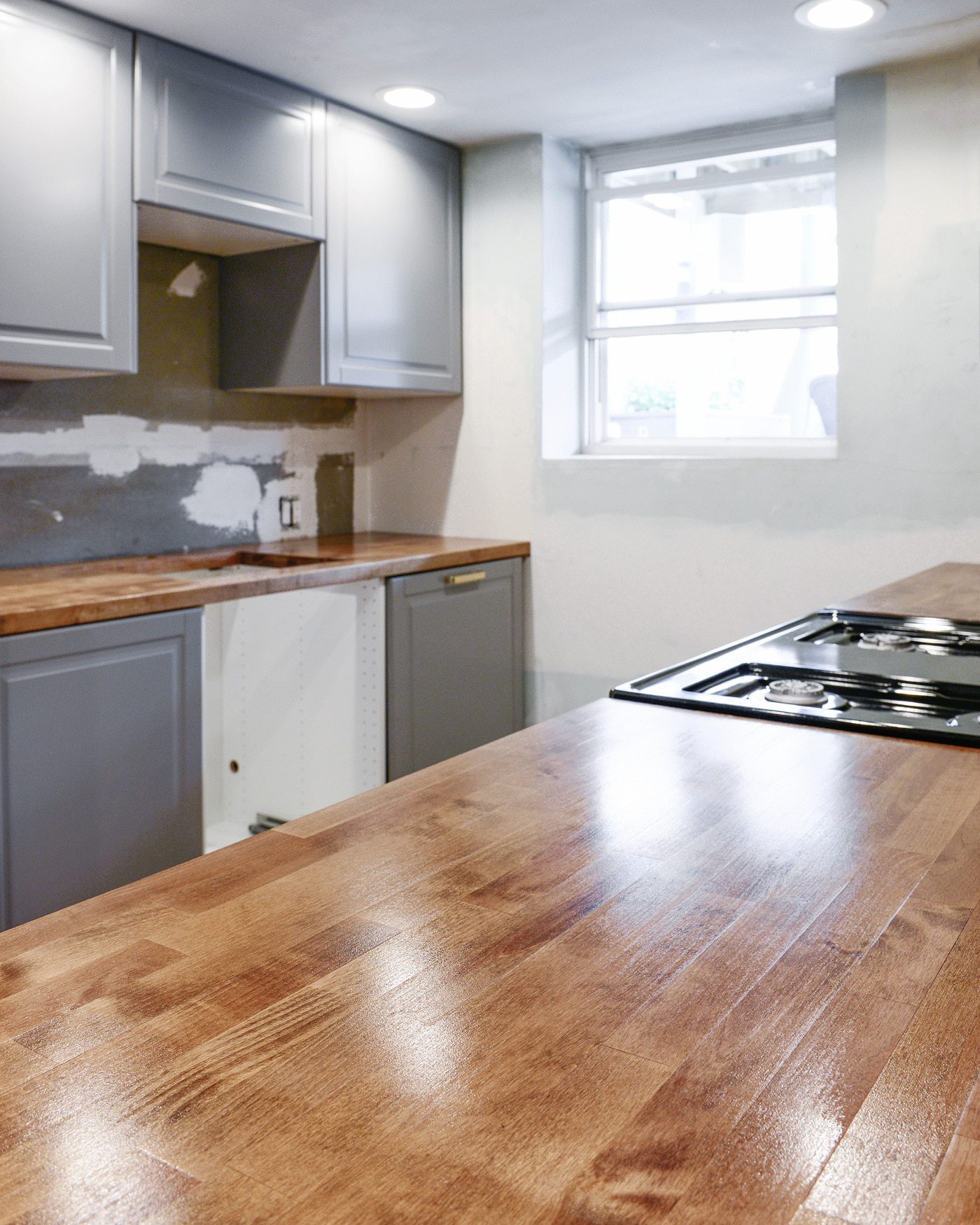
Whitewash and Seal a Butcher Block Counter Top The DIY Mommy

How To Stain and Seal Butcher Block Counters – The Chronicles of

Related articles:
- Oiling Butcher Block Countertops
- Maple Butcher Block Countertop Finish
- Average Cost Of Butcher Block Countertops
- End Grain Butcher Block Countertops
- Faux Butcher Block Countertop
- Stain And Seal Butcher Block Countertops
- Teak Butcher Block Countertops
- Order Butcher Block Countertops
- What To Seal Butcher Block Countertops With
- Types Of Butcher Block Countertops